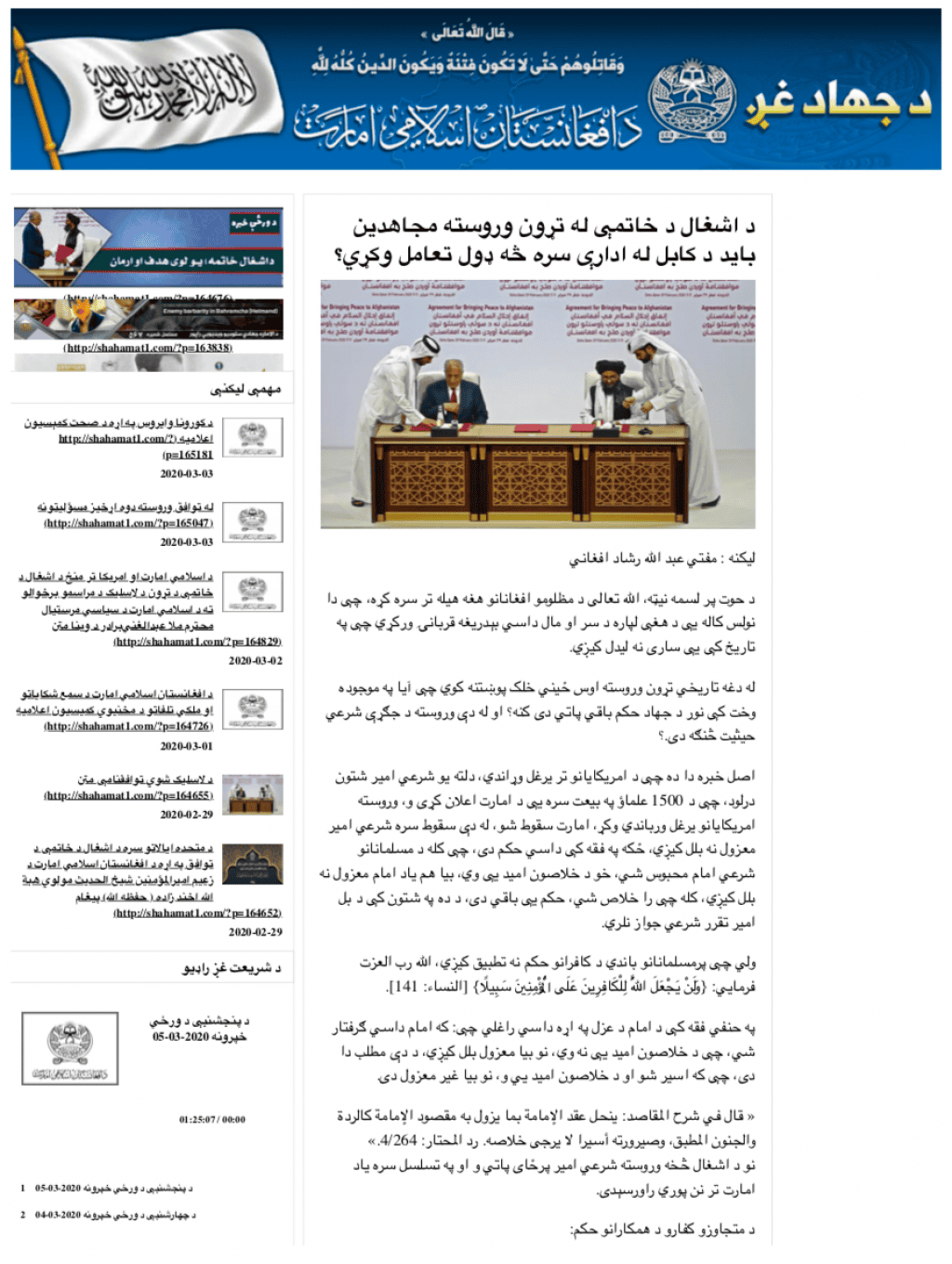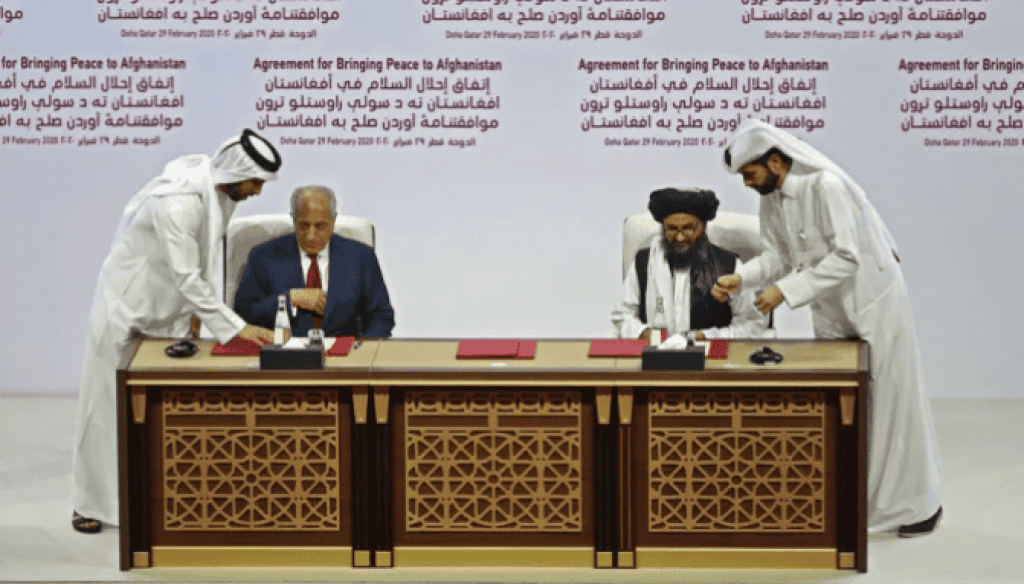The Taliban has issued a religious decree, or fatwa, calling for an “Islamic government” to be formed in Afghanistan. This Islamic government is to be led by Mullah Haibatullah Akhundzada, its current emir, and “lawful ruler” of Afghanistan. The Taliban fatwa says the group “shall continue waging armed jihad” until it establishes the Islamic Emirate of Afghanistan.
The fatwa flies in the face of the hopes of U.S., Afghan and Western officials who maintain that the Taliban will participate in an inclusive democratic government, or agree to some other long-term, power-sharing arrangement. However, as FDD’s Long War Journal has reported for well over a decade, the Taliban has been very clear that the goal of its insurgency is to regain control of Afghanistan and impose its rule.
The statement was released on the Pashto version of Voice of Jihad, the Taliban’s official website, on Mar. 5, just five days after the Taliban signed an agreement securing the withdrawal of U.S. forces from Afghanistan. Voice of America first reported on the fatwa. FDD’s Long War Journal has obtained a translation of the Taliban’s religious decree.
“The agreement with the United States does not alter the status of the Islamic Emirate of Afghanistan’s supreme leader as the lawful ruler of Afghanistan,” the Taliban ruling reads. The Taliban refers to itself as the Islamic Emirate of Afghanistan, the name of the group that ruled most of Afghanistan from 1994 to 2001.
Mullah Haibatullah Akhundzada “has an Islamic duty to establish an Islamic government after foreign occupation troops exit the country,” the Taliban ruling insists. “In the presence of a legal emir [Haibatullah] there cannot be another ruler of Afghanistan.”
The Taliban notes that a U.S. withdrawal from Afghanistan will not end its “armed jihad,” and that it must continue fighting to establish an “Islamic government ruled by an emir.” From the Taliban fatwa:
“As this 19-year jihad against the foreign occupation was waged under the command of a legal emir, the termination of occupation agreement does not mean that his [Haibatullah’s] rule is absolved. The mujahideen must work to establish an Islamic government ruled by an emir. That obligation is the next step after U.S. and its allies troops leave.”
“Until the occupation is completely severed from its roots and an Islamic government formed, the mujahideen [Taliban] shall continue waging armed jihad and exerting efforts for the implementation of Islamic rule.”
Taliban spokesman Zabihullah Mujahid attempted to downplay the fatwa to Voice of America, claiming it was merely “the opinion of one of the group’s religious scholars” and not the official policy of the group.
However, the Taliban does not publish information on Voice of Jihad that contradicts its official position, particularly with respect to something so important as the issue of governance and its emir. FDD’s Long War Journal has monitored Taliban propaganda at Voice of Jihad for well over a decade and has yet to encounter reports contradicting the group’s official position.
The Mar. 5 fatwa is entirely consistent with the Taliban’s past statements, all published on Voice of Jihad, concerning the shape of a future government in Afghanistan, as well as the meaning of the withdrawal of U.S. forces. Earlier this year, the Taliban admitted the so-called peace talks with the U.S. were all about “the withdrawal of their forces.”
The Taliban has repeatedly said that the Islamic Emirate of Afghanistan is the true representative of the Afghan people. It has said it has not sacrificed so much “for the sake of some silly ministerial posts or a share of the power.” In other words, it refuses to join an Afghan government that it deems “un-Islamic.” From Voice of Jihad, Jan. 28, 2016 [emphasis ours]:
The Islamic Emirate has not readily embraced this death and destruction for the sake of some silly ministerial posts or a share of the power. On the contrary they epitomize the nation’s hopes and aspirations for a just and peaceful government that will strive to build our beloved nation on the basis of Islamic law, social justice and national interests.
The people of Afghanistan readily sacrifice their sons to achieve this objective. And the Emirate – as the true representative of our people – will not end its peaceful and armed endeavors until we have achieved this hope of Afghanistan.

Bill Roggio is a Senior Fellow at the Foundation for Defense of Democracies and the Editor of FDD's Long War Journal.
Are you a dedicated reader of FDD's Long War Journal? Has our research benefitted you or your team over the years? Support our independent reporting and analysis today by considering a one-time or monthly donation. Thanks for reading! You can make a tax-deductible donation here.

No comments:
Post a Comment